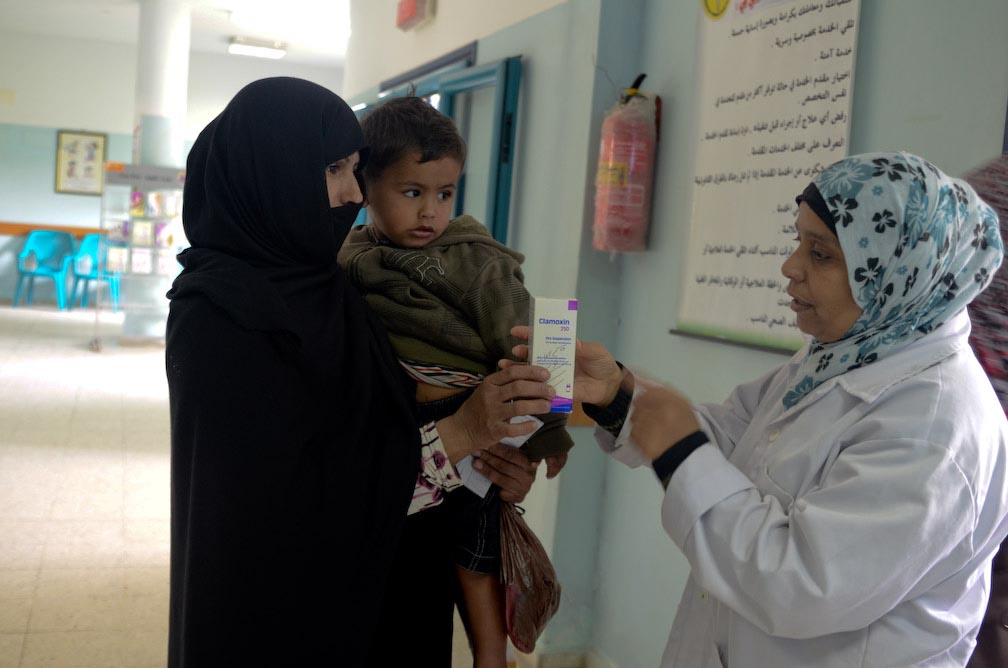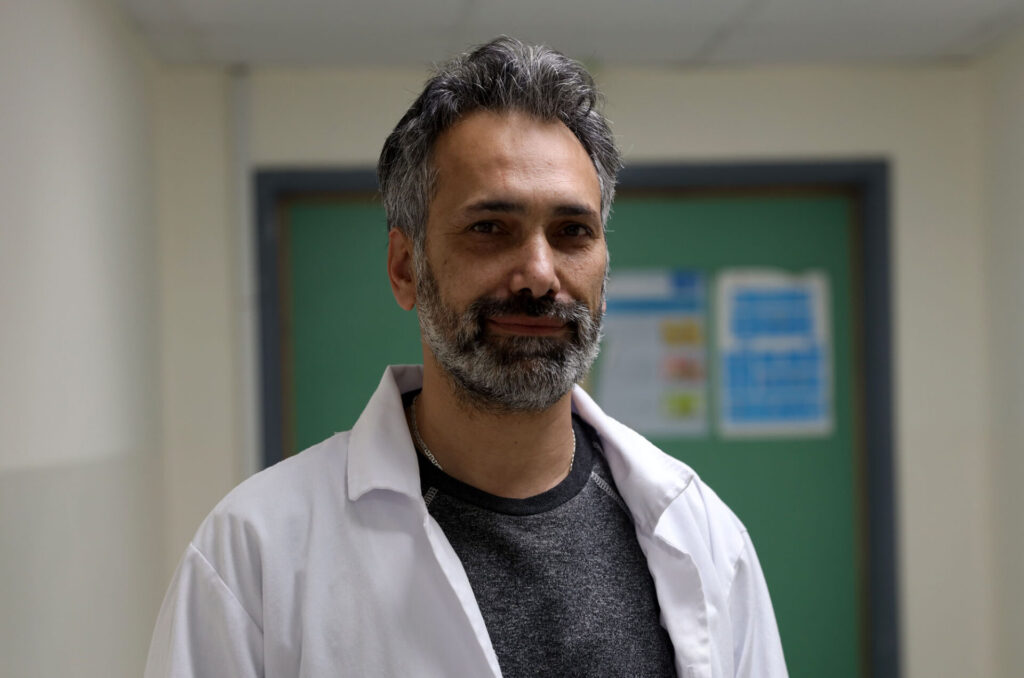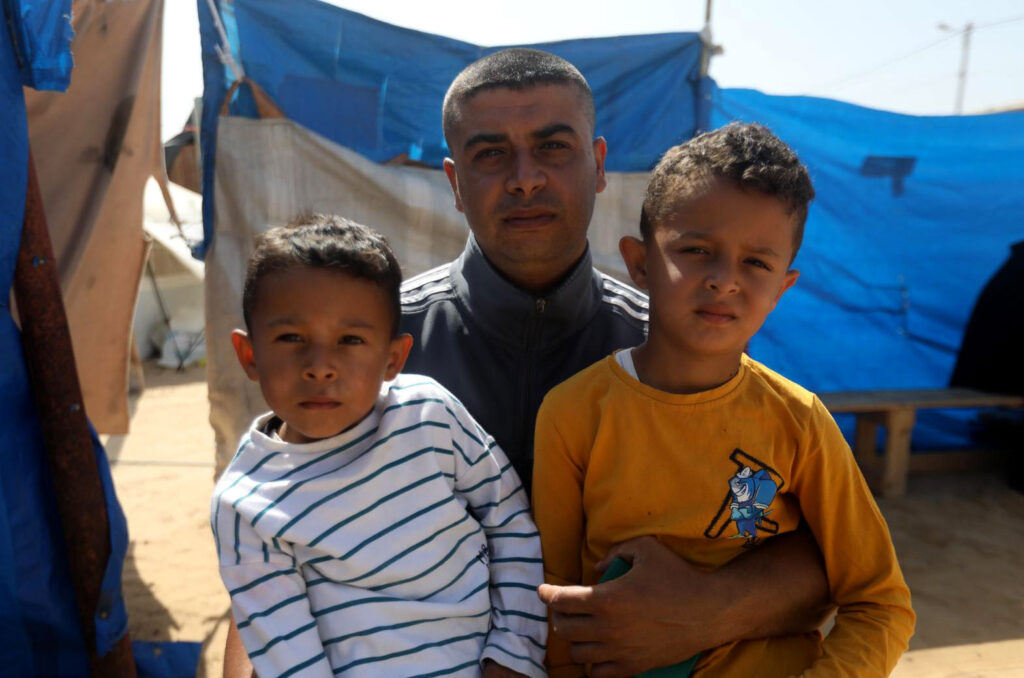Jan, 2015
When 4-year-old Ishaak couldn't sleep because of a pain in his foot, his mother took him to the PMRS clinic in hopes they could help alleviate his suffering.
When Kifayah Abu-Hasheesh spotted a small red mass on her four-year-old son’s right foot, she took him to Gaza’s Palestine Medical Relief Society (PMRS) Clinic. “I explained to the doctor that he was playing with other kids in the neighborhood and came home, crying in pain. I wasn’t that worried until I noticed the red mass swelling. He didn’t sleep that night because of the pain,” Kifayah added. At the Gaza clinic, she learned that her child had an abscess and needed immediate treatment.
“It was filled with pus and the surrounding tissue was all inflamed,” Kifayah recalled. Any slight touch would trigger agonizing pain. She was upset watching little Ishaak in such misery.
Unfortunately, infections in children are prevalent in Gaza and other poor and conflict-ridden communities.
“It’s not uncommon to see such cases among villagers,” reported Dr. Mohammad Shihata. “We receive cases with the same type of infection in adults and children alike.”
As part of the treatment, the doctor opened and drained the abscess, applied an antiseptic solution and wrapped it with a sterile bandage. Throughout the period of healing, the doctor will continue to clean the area of infection and change the bandage. Ishaak was prescribed Clamoxin to avoid further inflammation or contamination of infection. Anera purchased the expensive antibiotic, thanks to funding from International Health Partners (IHP), and distributed the medicine to three major clinics and hospitals in Gaza to provide treatment for patients who cannot otherwise afford it.


Unhealthy Living Conditions are Threat to Health
Dr. Shihata explains that abscesses are commonly caused by germs and bacteria entering the body through minor skin breaks or punctures. They often cause inflammation. In Gaza’s rural community, he says, inadequate or no footwear, the absence of proper sanitation and poor personal and household hygiene are major health concerns, which increase the potential for infections. Children often play outside barefoot or in open sandals.
Even before the war broke out in Gaza this past summer, Kifayah’s village lacked clean water. When it rains, as it often does during winter, the village streets are awash in filthy sewage-filled water. Villagers are susceptible to infections and water-borne disease.
Donated medical supplies from international organizations are essential to the well-being of Palestinians living in poverty. Kifayah has always relied on the PRMS clinic for free or low-cost medical care. It is the closest health facility to her Bedouin village in northern Gaza. The clinic also offers awareness sessions for parents about best health practices to reduce the potential for illness or infection.
Kifayah welcomes the free help. Her husband earns very little farming a rented piece of land. “Our economic situation is dim. My husband barely makes a living,” said the mother of five. “When I came to the clinic and heard that the medicine we needed for Ishaak would be free, it meant the world to me. I don’t know how I would have been able to afford it otherwise.”




